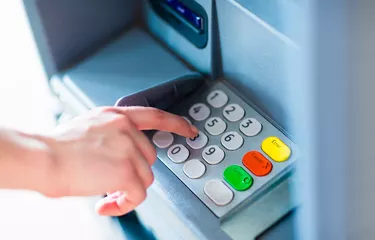
Billions of dollars are deposited into bank accounts every year in the United States; as an example, from June 2019 through June 2020 at Bank of America alone, over $1.7 billion in deposits were made. With all the money flowing in and out of the banking system, the U.S. government created laws and regulations to prevent fraud. One of these is the rule that banks must report to the Internal Revenue Service any transactions exceeding $10,000.
The Bank Secrecy Act of 1970
Video of the Day
The Bank Secrecy Act of 1970, as part of the larger Currency and Foreign Transactions Reporting Act, was signed into law by President Richard Nixon in an effort to combat money laundering practices. The law requires banks to report large transactions as well as suspicious activity to certain federal agencies; individuals or entities making large deposits from the sale of goods may also be required to report to the IRS separately if the transaction is a business transaction.
Video of the Day
Bank Reporting: Currency Transaction Reports
When you deposit or withdraw more than $10,000 into or from your bank account, the bank is required to report that information to the federal government using what is called a currency transaction report. The bank will prepare a currency transaction report any time a customer initiates a transaction (deposit or withdrawal) in excess of $10,000. It puts the government, including the IRS and the Financial Crimes Enforcement Network (FinCen), on notice of large transactions. The IRS will use the information to determine whether the customer must pay taxes on a transaction, while FinCen will use it to make sure the money isn't moving around in furtherance of a crime.
Self Reporting: IRS Form 8300
The bank will automatically submit a currency transaction report to the appropriate authorities; nevertheless, the person or entity making the deposit may be required to make their own report separately to the IRS. IRS Form 8300 is a document that you must complete and submit to the IRS if you deposit more than $10,000 from the sale of a single asset in the ordinary course of business, or from a series of related business transactions. The Form 8300 is not required if you are an individual who sells something not in the ordinary course of a business; for instance, if you sell your personal vehicle to another private party for more than $10,000 and deposit the funds, and you're not in the business of selling cars, you generally do not need to complete the Form 8300. However, when you make the deposit, the bank will still file a currency transaction report.
Mandatory Reporting and Suspicious Activity
The bank's reporting is mandatory when a transaction is initiated and not when it is completed. If you start depositing $11,000 in your bank account and change your mind, the teller will still have to report the transaction and may even mark it as suspicious activity, potentially triggering an investigation. Some individuals will try to avoid the reporting requirement by breaking up a large transaction into smaller transactions, spaced out over time, in a scheme known as "structuring;" however, structuring is a federal felony subject to penalties, including imprisonment.
For instance, if you receive $15,000 in lottery winnings and deposit the money into your bank account, the bank will submit a currency transaction report for the deposit. If you instead decide to break it up and deposit $7,500 on Tuesday and $7,500 on Friday to avoid the reporting requirement, you have engaged in structuring, which is a felony. If caught, you could face up to five years in prison (or 10 years, if another crime is committed in the process and the conduct involves more than $100,000 in a 12-month period).